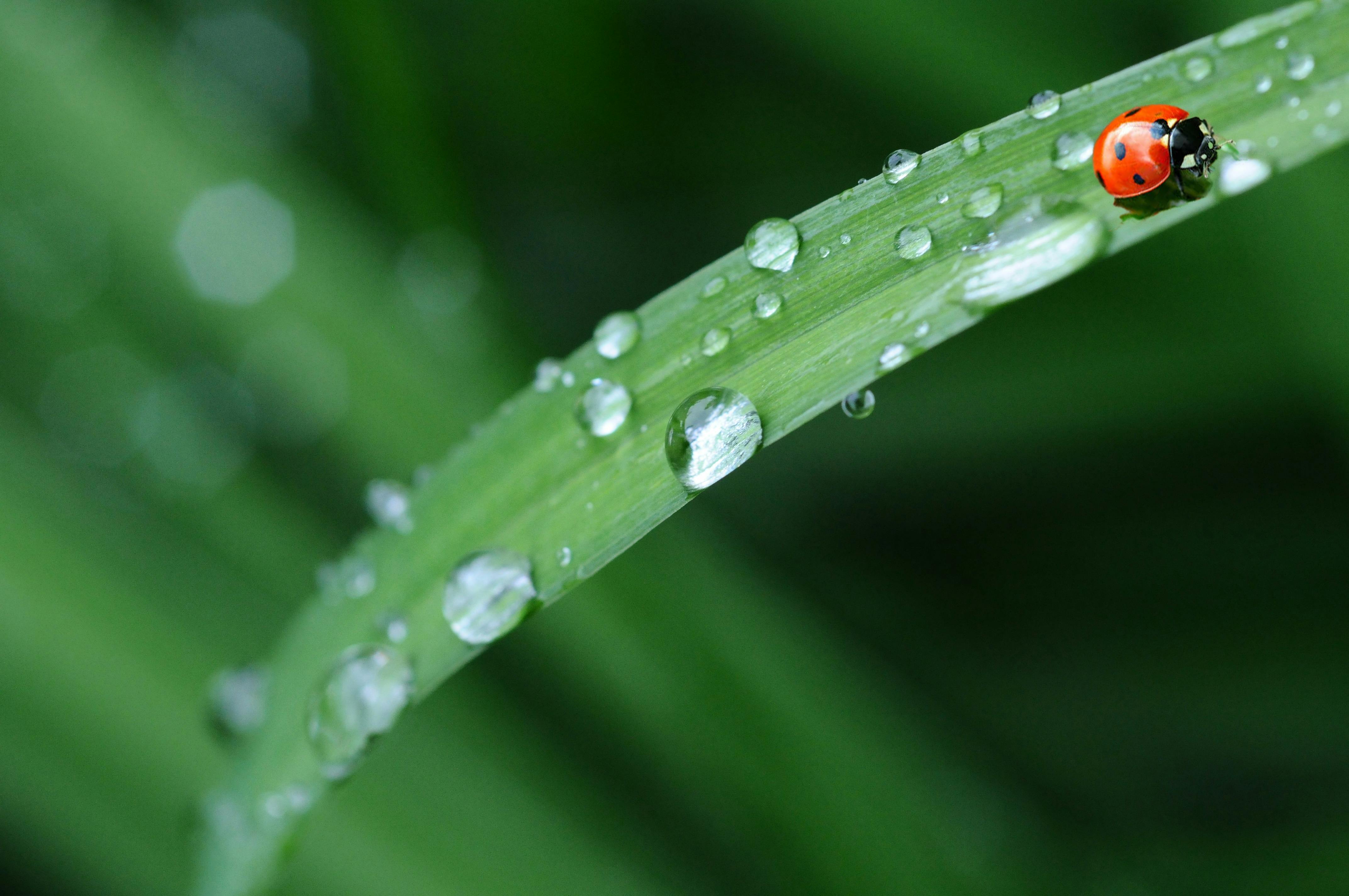Distilled water and spring water are two different types of water that have distinct characteristics. Distilled water is created through a process of evaporation and condensation, where the water is heated to its boiling point, forcing it to evaporate before condensing again as a pure liquid. Spring water, on the other hand, is naturally sourced from underground springs and contains trace amounts of minerals that give it unique characteristics. While both types of water provide hydration, they offer very different benefits.Distilled water is a type of purified water that has had both contaminants and minerals removed through a process of distillation. Distillation involves boiling the water and then condensing the steam into a clean container. After the steam has been condensed, it is free from salts, minerals, and other impurities.
What is Spring Water?
Spring water is water that is naturally sourced from an underground formation and flows to the surface of the earth. It is typically found in areas where the water table is close to the surface, such as in valleys and on hillsides. Spring water can be a great alternative to tap or other bottled waters. It is generally considered to be of higher quality than other bottled waters because it has not been treated or processed in any way. Spring water can also be naturally enriched with beneficial minerals and nutrients, making it a healthier choice for those looking for a natural source of hydration. Many people prefer spring water because of its taste and freshness compared to municipal tap water or other sources of bottled drinking water.
Are Distilled Water and Spring Water the Same Thing?
No, distilled water and spring water are not the same thing. Distilled water is created through a process of boiling water and then condensing the steam to create pure, clean drinking water. This process removes any minerals or other particles from the water, making it taste different from spring water. Spring water is sourced from an underground aquifer, which contains minerals that give it a unique flavor. The minerals also provide some health benefits that are not found in distilled water.
Distilled water is ideal for use in items such as steam irons, car batteries, and medical equipment because it does not contain any impurities that can cause corrosion or other damage. It is also often used for drinking purposes when contaminants in tap or well water make drinking it dangerous.
Spring Water is generally safe to drink without further purification due to its mineral content, but it should be tested for contaminants before consumption if it comes from a non-commercial source such as an underground river or lake. It is also preferred over tap or well water for aquariums because fish thrive better in an environment with minerals than without them.
Difference between Distilled Water and Spring Water
Distilled water and spring water are two different types of water that may be used for different purposes. Distilled water is created through a process of distillation, which involves boiling the liquid and collecting the steam. On the other hand, spring water is sourced naturally from underground springs. The key difference between distilled and spring water lies in their mineral content.
Distilled water has no minerals or ions as they have been removed during the distillation process. This makes distilled water more acidic than spring water and not suitable for drinking without adding minerals back to it. However, this lack of impurities can make distilled water ideal for use in certain industrial applications such as car batteries or medical devices that require extremely pure liquids.
Spring water on the other hand, contains a range of natural minerals such as calcium, magnesium, potassium, chloride, sulfate and sodium. These minerals give spring water its unique taste and can also provide health benefits when consumed regularly due to their high mineral content. Spring water is also often free from contaminants due to its natural filtration process through the earth
Properties of Distilled Water
Distilled water is a type of purified water that has had both contaminants and minerals removed. It is usually produced using a distillation process in which steam is used to separate impurities from the water. This method of purification removes all bacteria, viruses, and other contaminants from the water, making it safe for drinking. Distilled water also lacks beneficial minerals, such as calcium and magnesium, which are found in other types of purified water. In addition, distilled water has a neutral pH level, meaning it is neither acidic nor alkaline.
Distilled water is widely used in medical and laboratory settings due to its high purity levels. It is also utilized for industrial purposes such as cleaning machinery or manufacturing products that require a higher degree of purity than regular tap or filtered water can provide. Since distilled water lacks essential minerals such as calcium and magnesium, it is not recommended for regular drinking purposes since these minerals are necessary for good health.
In comparison to other types of purified or filtered water, distilled water has a much longer shelf life since it does not contain any organic material

Properties of Spring Water
Spring water is a unique type of natural water that is sourced from underground aquifers. It has many beneficial properties, including its high mineral content, purity, and alkalinity.
The mineral content of spring water is generally higher than regular tap water because it comes from a deep underground source. This mineral-rich water can help to replenish essential minerals in the body and aid in digestion. Higher levels of certain minerals, such as calcium and magnesium, can also help to improve circulation and reduce inflammation.
Spring water is also known for its purity. It is typically filtered through layers of sand and rock before being collected from the springs. This process helps to remove any potential contaminants that could be present in other types of water sources.
Spring water is also naturally alkaline, which helps to balance out the acidity levels in the body. Alkaline waters are believed to have anti-inflammatory properties, which can help reduce inflammation and improve overall health.
Because of its many beneficial properties, spring water has become increasingly popular as a drink choice for health conscious individuals. It
Origin of Distilled Water
The concept of distilled water has been around for centuries. Ancient civilizations used the process of evaporation to purify water. They boiled water in large pots and then collected the steam, which condensed into pure liquid. This method was used to produce “distilled” or “purified” water, free from impurities.
Today, distilled water is produced using modern technology such as reverse osmosis or distillation. Reverse osmosis involves pushing water through a membrane to remove impurities in it. Distillation involves boiling the water and collecting the steam, which is then condensed back into liquid form.
Distilled water is widely used in many industries, such as food processing, pharmaceuticals, cosmetics, and even automotive manufacturing. It is also often used for medical procedures as it helps provide a sterile environment for operations and other treatments. In addition, it is a popular choice for drinking purposes due to its purity and lack of contaminants.
Distilled water has a number of advantages over regular tap water. It does not contain any minerals or chemicals that can be harmful if consumed regularly and it also eliminates the risk
Origin of Spring Water
Spring water is naturally sourced from an underground aquifer, a layer of permeable rock, sand, or earth that contains water. This type of water is sourced from the natural pressure found in aquifers, which often come from rain or snowmelt that has filtered into the ground. It can also be sourced from melting glaciers or other sources. Spring water is generally considered to be higher quality than other types of drinking water because it has not been exposed to any chemicals or contaminants. It is also naturally filtered and typically contains trace minerals such as calcium and magnesium.
Spring water has been used as a source of drinking water since ancient times. In fact, many civilizations relied on spring water for their survival due to its purity and availability. People in Ancient Greece collected spring water in clay jars and stored it in underground cisterns for later use. The ancient Romans also built elaborate systems of aqueducts that transported spring water into public baths and other public spaces for general use.
Today, spring water is still widely used as a source of drinking water in many parts of the world. It is often

Conclusion
Distilled water and spring water are not the same thing. Distilled water has had its minerals and other contaminants removed through a heating process, while spring water is naturally filtered by the earth. The tastes of both waters are different, as distilled water has a slightly metallic taste due to its lack of minerals, while spring water has a slightly sweet taste. Distilled water is used for drinking and medical purposes, while spring water can be used for drinking or recreational activities. Ultimately, both distilled and spring waters have their own unique qualities that make them both useful in different situations.
In conclusion, distilled water and spring water are two distinct types of bottled waters that have their own sets of advantages and disadvantages. Choosing one over the other will depend on your individual needs, as well as the type of activity you’re planning to do with it.

